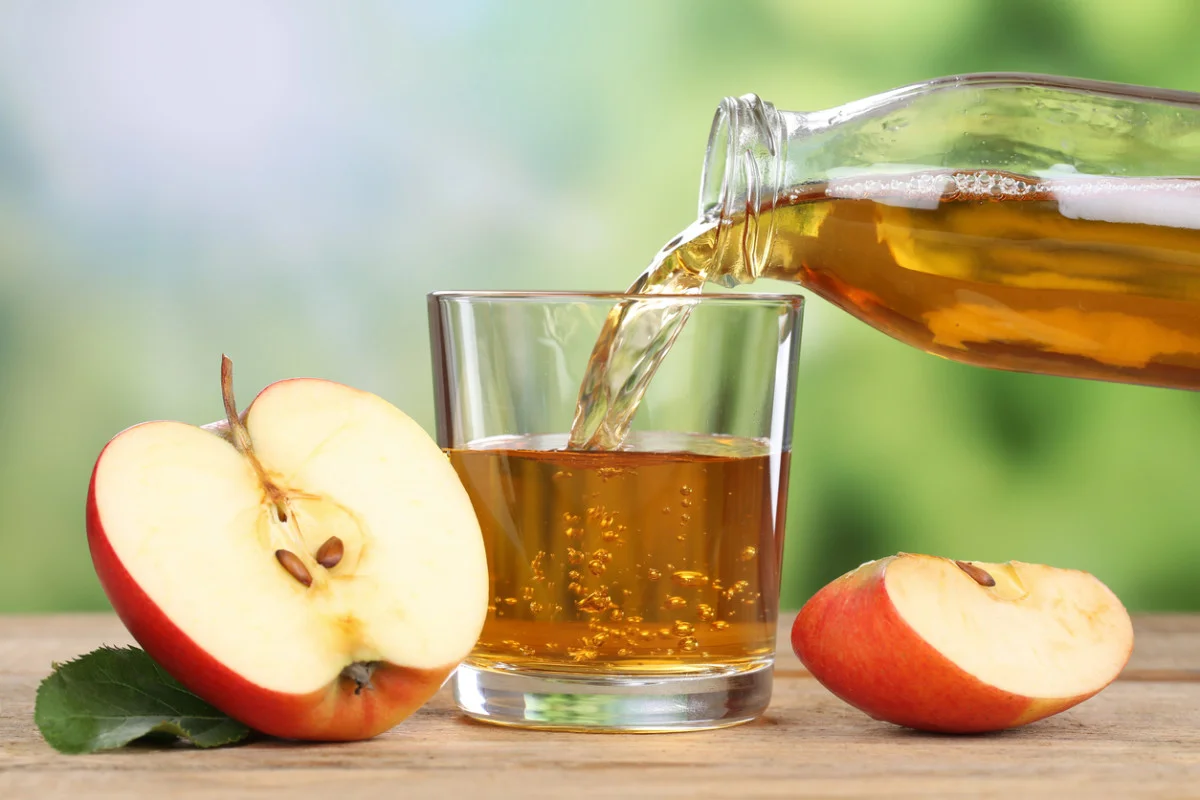Children and adults have always favored apple juice as their beverage of choice. Often dominating the scene as a refreshing beverage, apple juice has a sweet taste and supposed health advantages. But concerns about its sugar level and nutritional worth have many people wondering: Is apple juice more of a delicious treat or a really healthy option? Let’s look at the data to find the reality regarding apple juice.
What Is Apple Juice?
Pressing apples to extract their liquid yields apple juice, which is subsequently filtered to eliminate pulp and occasionally pasteurized to increase shelf life. Certain types are produced from concentrate, in which case water is added back to a concentrated apple extract. Although fresh apple juice boasts greater nutrients, many commercially sold varieties are sweetened or fortified.
The Promised Benefits of Apple Juice
- Rich in Vitamins: Apple juice contains Vitamin C, particularly in fortified varieties, which supports immune function and skin health. It also provides small amounts of potassium, important for heart and muscle function.
- Hydration: With its high water content, apple juice helps maintain hydration. This can be especially appealing to those who dislike plain water.
- Source of Antioxidants: Apples are rich in polyphenols, a type of antioxidant that may support heart health and reduce inflammation. While juicing removes some of these compounds, certain types of apple juice retain them, especially cloudy or unfiltered varieties.
- Energy Boost: The natural sugars in apple juice can provide a quick source of energy, making it a popular choice for athletes or those needing a midday pick-me-up.
The Sugar Content Dilemma
- High in Natural Sugars: Like certain sodas, a single 8-ounce apple juice serving has about 24 grams of sugar. Although this sugar is naturally occurring, if taken in excess, it can still cause blood sugar surges.
- Lack of Fiber: Apple juice loses fiber during manufacturing unlike entire apples. Whole apples are a better choice for people trying to control weight and blood sugar levels since fiber delays the absorption of sugar into the bloodstream and increases sensations of fullness.
- Caloric Density: Apple juice can be calorie-dense even though it is liquid. About 120 calories in an 8-ounce glass can quickly build up if drunk often.
- Added Sugars in Commercial Brands: A few apple juice products have sweeteners or added sugars, which increases calorie count even more and reduces nutritional value. Choose 100% juice variations and always read labels.
Potential Health Risks
- Dental Health Concerns: Particularly if drunk throughout the day, the sugar and acidity in apple juice can cause tooth damage. Using a straw or rinsing with water will assist to reduce this danger.
- Impact on Blood Sugar: Apple juice’s high glycemic load can provide problems for those with diabetes or insulin resistance. It’s advisable to eat it in little amounts or alongside meals.
- Overconsumption: Apple juice’s lack of satiety can cause overconsumption, which fuels further calorie intake devoid of a commensurate sense of fullness.
How to Enjoy Apple Juice Mindfully
- Choose Unfiltered or Cloudy Juice: These options retain more of the apple’s natural polyphenols and nutrients, making them a slightly healthier choice.
- Control Portion Sizes: Stick to small servings (4 to 6 ounces) to enjoy the flavor and hydration benefits without excessive sugar and calories.
- Dilute with Water: Mixing apple juice with water or sparkling water can reduce sugar content per serving while still offering a refreshing taste.
- Pair with a Balanced Meal: Drinking apple juice alongside protein or healthy fats can help slow sugar absorption and stabilize blood sugar levels.
- Limit Frequency: Reserve apple juice for occasional treats rather than a daily beverage to avoid overloading on sugar and calories.
Alternatives to Apple Juice
For those seeking a healthier option, consider these alternatives:
- Whole Apples: Retain all the fiber, nutrients, and satiety benefits without the sugar spike.
- Infused Water: Add slices of apple, cinnamon, or other fruits to water for a naturally flavored, low-calorie drink.
- Herbal Teas: Warm or iced, herbal teas can provide a flavorful and hydrating alternative without added sugars.
The Role of Apple Juice in a Balanced Diet
Although apple juice has considerable nutritional value, it should not be the main source of hydration; whole fruits or water should take front stage. Apple juice can be a tasty addition when drunk in moderation and in line with a balanced diet. On the other hand, depending too much on it or substituting it for complete foods could cause too much sugar intake and lost chances for other nutrients, including fiber.
Conclusion
Depending on how you consume it, apple juice can either be a dangerous sugar overload or a revitalizing beverage. Knowing its nutritional profile and choosing wisely can help you to enjoy apple juice without sacrificing your health. Moderation is important, as with any food or beverage; whole foods should always be the mainstay of a healthy diet.
